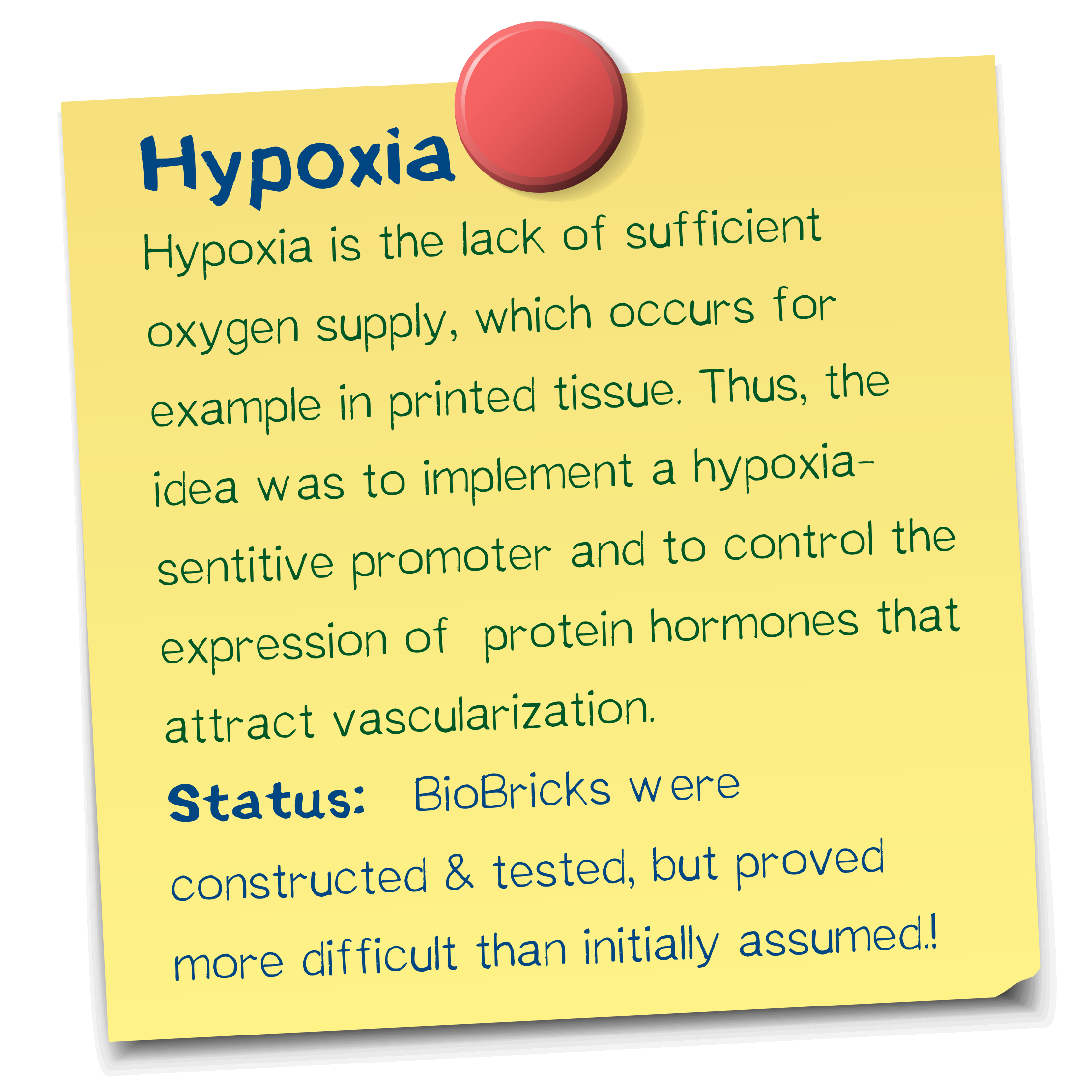(→Fighting hypoxia in printed tissue) |
(→Results) |
||
| Line 56: | Line 56: | ||
==Results== | ==Results== | ||
| + | |||
| + | [[File:Hyp12 NL.jpeg|thumb|center|850px|]] | ||
| + | [[File:Hyp24 NL.jpeg|thumb|center|850px|]] | ||
==Discussion== | ==Discussion== | ||
Revision as of 22:25, 18 October 2016
Seitenverantwortliche/r: Elena
Fighting hypoxia in printed tissue
Unicellular organisms such as bacteria posses the ability to reproduce very quickly, when given the right conditions such as warmth, moisture and suitable nutrients [1] and enter an inactive state when these are limited. On the contrary, most multicellular systems depend on a steady, adequate supply of oxygen and nutrients essential for their survival and metabolic stability.
Herein lies one of the main challenges of bioprinting approaches.
When printing, the homogenous delivery of oxygen to three-dimensional cell-constructs is limited by diffusion gradients in tissue from the periphery towards the center Cite error: Closing</ref> missing for <ref> tag- ↑ http://www.bbc.co.uk/schools/gcsebitesize/science/triple_ocr_gateway/beyond_the_microscope/understanding_microbes/revision/2/



